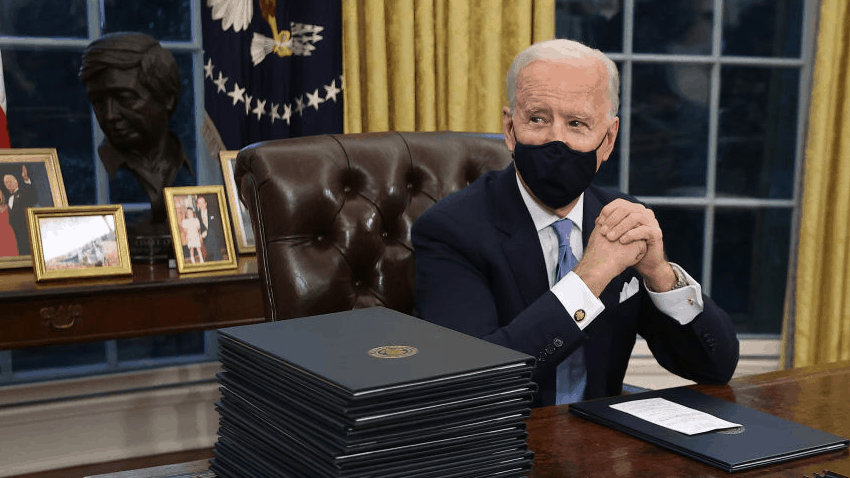Mackenzie Bouverat is a student at Harvard Law School.
In January, Judge Edward M. Chen of the U.S. District Court for the Northern District of California certified a class of more than 4,800 Uber drivers who alleged they were misclassified as independent contractors rather than employees under California law. The certification, he held, was not precluded by California’s Proposition 22, as the measure was not not retroactive. In a motion for clarification, Uber argued the court’s retroactivity judgment was inappropriate at the class certification stage. Last Friday, Judge Chen granted the order for clarification over the drivers’ objections, writing that “withholding adjudication of the merits of the retroactivity claim does not negate class certification — the issue of the retroactivity of Proposition 22 is a matter that may properly be decided on a class-wide basis.”
In his discretionary spending request, President Joe Biden has proposed spending $14.2 billion on the U.S. Labor Department for the 2022 fiscal year—a 14% increase in the agency’s current annual budget, subject to Congressional approval. The proposal allocates $2.1 billion for workers’ protection subdivisions of the Department of Labor (including the Wage and Hour Division and Occupational Safety and Health Administration). This figure amounts to $304 million more than was allocated to these subdivisions during the last fiscal year. With respect to the former division, the White House recommends that the funding be directed at investigating misclassification of workers as independent contractors rather than employees, as well as violations of equal employment obligations of Federal contractors. $285 million is requested for registered apprenticeship programs—$100 million more than the current annual funding—and is aimed at expanding paid vocational training opportunities for women and people of color. Finally, President Biden proposed a 6% increase for Workforce Innovation and Opportunity Act state grants directed at employment services and job training for workers dislocated due to the coronavirus pandemic. A more detailed budget request featuring specific funding requests for DOL subagencies is anticipated.






Daily News & Commentary
Start your day with our roundup of the latest labor developments. See all
February 11
Hollywood begins negotiations for a new labor agreement with writers and actors; the EEOC launches an investigation into Nike’s DEI programs and potential discrimination against white workers; and Mayor Mamdani circulates a memo regarding the city’s Economic Development Corporation.
February 10
San Francisco teachers walk out; NLRB reverses course on SpaceX; NYC nurses secure tentative agreements.
February 9
FTC argues DEI is anticompetitive collusion, Supreme Court may decide scope of exception to forced arbitration, NJ pauses ABC test rule.
February 8
The Second Circuit rejects a constitutional challenge to the NLRB, pharmacy and lab technicians join a California healthcare strike, and the EEOC defends a single better-paid worker standard in Equal Pay Act suits.
February 6
The California Supreme Court rules on an arbitration agreement, Trump administration announces new rule on civil service protections, and states modify affirmative action requirements
February 5
Minnesota schools and teachers sue to limit ICE presence near schools; labor leaders call on Newsom to protect workers from AI; UAW and Volkswagen reach a tentative agreement.